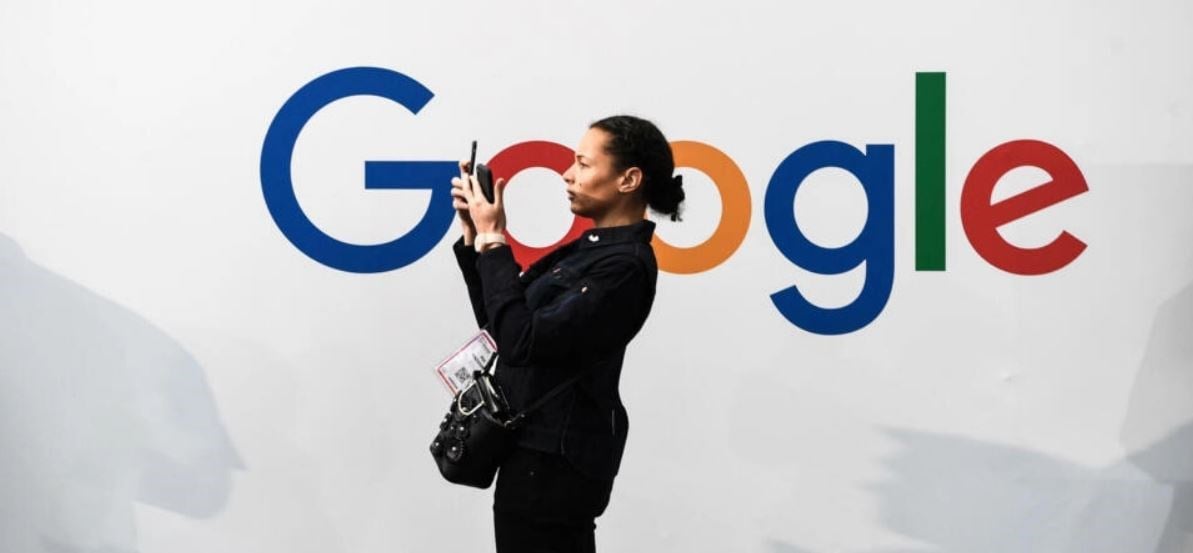Tech giants face further legal action after $10Bln Google Lawsuit: US
The US Department of Justice (DOJ) has initiated a major antitrust trial against Google in Washington, accusing the tech giant of abusing its dominance in the internet search engine market and obstructing competition through various tactics.
-

A woman using her phone in front of a Google sign. (AFP)
Experts suggest that the US government is poised to pursue additional legal actions against major tech companies following the Department of Justice (DoJ) lawsuit against Google. However, it remains uncertain whether these actions will ultimately result in the breakup of the Big Tech monopolies.
The DoJ has brought forward allegations that Google is exploiting its dominant position in the internet search engine market, creating artificial barriers to hinder competition. The DOJ contended that Google has been allocating over $10 billion annually to companies like Apple to secure its position as the default search engine on mobile devices and browsers. Additionally, the DOJ also asserted that Google's contracts, which lead to the preinstallation of Google apps and services on Android devices, are also anticompetitive.
Not an isolated incident
The current legal action against tech giants by the US government isn't the first instance where such actions have been taken due to concerns about their market dominance negatively impacting innovation and consumer well-being.
For instance, there was the case of United States v. AT&T, resulting in the 1984 breakup of the Bell System, which had been the dominant force in US telephone services since its establishment in 1877. Another example is the 2001 case of United States v. Microsoft Corporation, where the software giant was labeled a monopolist but managed to avoid a breakup when a court of appeals later partially reversed the initial ruling.
Considering the past legal precedents, it remains uncertain how the current antitrust case will ultimately unfold, as noted by Stephen Presser, the Raoul Berger professor of legal history emeritus at Northwestern University’s Pritzker School of Law.
"There is probably no area of American law more fraught with uncertainty than antitrust law, and it is exceedingly difficult to determine how any legal cases against the great big tech companies would play out," Presser said, as quoted by Sputnik.
Discussing the AT&T breakup, the specialist proposed that it was advantageous for both the general public and shareholders, as they acquired shares in various new companies, ultimately leading to profitable outcomes.
"In AT&T’s case, my belief is that the divestitures were eventually thought to be in the shareholders’ interest, as they turned out to be, and AT&T cooperated in its metamorphosis. Absent such a situation, I’m not sure a break-up of the currently hegemonic tech companies is likely to come to pass, and I don’t think it’s likely in the foreseeable future, but, as I say, it’s really anyone’s guess," Presser said.
It is worth noting that the trial is expected to span a period of 10 weeks and feature an array of witnesses and internal Google documents, which may ultimately unveil that monopolizing search has long stood as a paramount objective for the company. Judge Amit Mehta presides over the case, and notably, there is no jury involved in the trial.

 3 Min Read
3 Min Read








